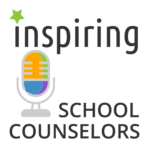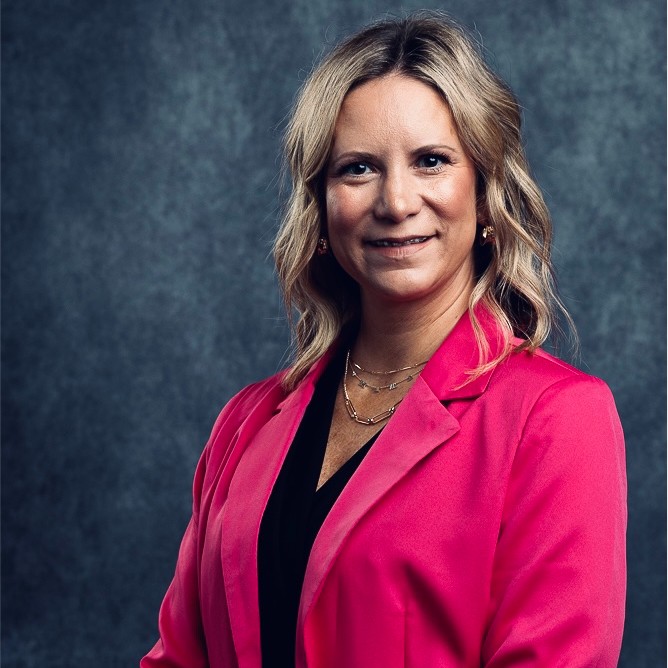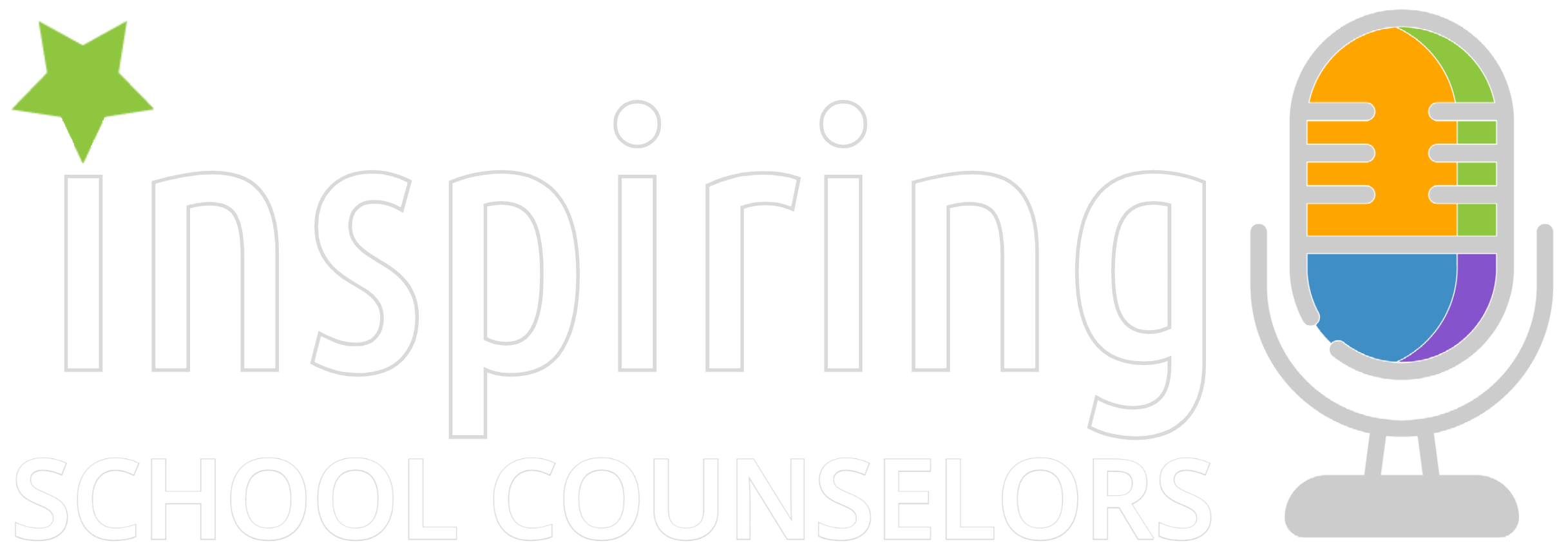What if your state decided it was important for EVERY school to have a comprehensive counseling program in place – even if it wasn’t the ASCA National Model – and made it easy for schools to implement the program? That’s the question Indiana posed, and answered, by developing a comprehensive counseling program called Carrying the Torch to Student Success AND developing a free online learning platform so that every school could implement the program. Listen in to hear how Indiana made all of this happen.

About Michelle Clarke
Michelle Clarke is the current Director of Student, School, and Family Engagement at the Indiana Department of Education. She is a former teacher, middle school and high school counselor and is passionate about advocating for the school counseling profession in Indiana.
You can find Michelle on LinkedIn.
Learn more about Carrying the Torch to Student Success.

We Want to Hear from You!

What’s your best advice for other school counselors? Who has influenced you? What books do you recommend? We want to know! Please take a few minutes to complete the Inspiring School Counselors form.
Subscribe
Inspiring School Counselors is available on these podcast apps and others. If you can’t find the podcast on your favorite app, let us know and we’ll make sure we get there. If you prefer to listen in your browser, visit https://inspiresuccess.org/podcast every week for a new episode. For new episode notifications and more, follow Inspire Success on Facebook, Instagram, or Twitter.
Transcript
A rough transcript follows.
Matt Fleck:
Hey ho. Hi everyone. Welcome to another episode of the Inspiring School Counselors podcast. Brought to you as always by Inspire Success with the generous support of Lilly Endowment. I’m Matt Flack. In July, my colleague Aimee Portteus and I will be at the ASCA National Conference in Atlanta, Georgia, hopefully chatting with you and possibly your state leaders about creating an online system to help school counselors in your state develop a comprehensive counseling program. We’ve had great success with this, most recently with the state of Indiana, which developed a comprehensive counseling program called Carrying the Torch to Student Success, very similar to the ASCA national model. Then asked us Inspire Success to create an online system so that Hoosier school counselors could adopt and implement the program. And it has been an overwhelming hit. So today we’re sharing a conversation between Aimee and one of Indiana’s school counseling specialists, Michelle Clark, about her beginnings as a school counselor and how the state of Indiana developed its online program. Here’s Michelle.
Michelle Clarke:
I started as a PE health teacher and then went to Butler University to get my master’s in school counseling and graduated with that in 2008. Um, and I worked as a school counselor in both middle school and high school. So I was a middle school counselor for most of my career. Um, and then ended up as a high school counselor at Noblesville High School, which is a suburb of Indianapolis. And so in 2018, on May 25th, 2018, Noblesville West Middle School actually experienced a school shooting, um, which really changed the dynamic of our community because, you know, we live in what we thought as a very safe community where something like that would never occur. And so that was really shocking to the students, the families, um, the parents, the educators, and the high school was their reunification spot. So it was sort of like the trauma from the middle school ended up coming to the high school. And so that crisis response was large and mighty, and we had a lot of work to do. So anyways, long story short, I ended up leaving the high school in 2019 to go to the Department of Education to be the school counseling specialist. And although we’ve had some transitions with new administration here at the Department of Education and some shifts a little bit in our focus, um, we’re still really trying to lead nationally in the areas of building comprehensive school mental health systems. That was a long, long story short.
Aimee Portteus:
No, that was great. That was great. One of the things that you have done in your position is work really hard to bring a comprehensive school counseling model to the entire state. Tell me a little bit about that. Carrying the Torch to Student Success. How did that begin? Where are we now, et cetera?
Michelle:
Absolutely. So Indiana has had the Gold Star award for, I don’t even know how many years. It’s just terrible. I should probably know. But essentially my first day on the job, like that was my main project, was to revamp our comprehensive school counseling model, to look at the award system. There were some improvements that could be made that the current award or Gold Star program wasn’t having the impact that we had anticipated or wanted for a comprehensive school counseling program or award to have. So then we just kind of started re-imagining if we could start this over, build on what we had, what could we do? And so with that, there was an advisory committee. So this was made up of school counselors across the state who were paid a stipend to participate kind of on this advisory board where we, like I said, we were just creative. We reimagined to build upon and create a new comprehensive school counseling model.
Aimee:
So let’s say that you are talking to counselors who are not in Indiana and don’t know this work necessarily, but feel like it would be important for a state to have a specific comprehensive school counseling program. What, what would you tell them that they need to start?
Michelle:
Yeah, so I mean, I think in, you know, where, where we kind of leaned into was the gathering of data. Obviously we’re data – we like to be data driven. And so I think that’s a way to really help your state leadership understand the importance of, you know, the difference between schools that don’t have a comprehensive school counseling program and those that do. And so for me, you know, that included us working with Inspire Success to create a school counseling survey, which we’d actually done for years prior as well. Um, but that really carried a lot of weight with the data that we needed to show that school counselors were not necessarily doing the work that the state recognized as important because they were doing non school counseling duties. And so I think that was a big shift in the conversation at the state level was that essentially felt like school counselors weren’t doing enough, but as we know, we are doing enough, we’re just doing stuff that we weren’t trained to do. So it was really all about putting the focus back on, like helping administrators and state leaders understand that the role of the school counselor is vital to a school and to student success. And so we have to shift our programs to allowing them to do the work that they’re trained to do.
Aimee:
Yeah, absolutely. So what role did your state level school counselor association play in rolling this program out?
Michelle:
You know, our executive director, Allen Hill, he has remained on the advisory board and so we just kind of worked together and we wanted it to be something that was in tandem. So we didn’t want the state organization and then the department of Ed and then other organizations to all be trying to implement different programs. We really wanted to work as a united front. We all know that, you know, as educators, sometimes it does feel like people are working in silos and we’re being asked to do things from many different directions. Um, and so we felt that if we could kind of roll this out together and have the input of the Indiana School Counseling Association, their board, their members, would be really valuable to this process and getting the buy-in for our schools to participate. So, um, yeah, they’ve been along with us for every step of the process.
Aimee:
Yeah. And from my perspective that has added a lot of weight to work that we’re doing. That’s great.
Michelle:
One of the things that’s been really helpful for us was developing a program with Inspire Success and creating a platform specific to Carrying the Torch. So it really is kind of a step-by-step walkthrough of what schools need to do to become recognized as a model program within the state. And then we’re also working to get reciprocity with ASCA maybe at some point. But I think having the platform kind of streamlining the way things used to be was kind of complicated for schools to get started. They had to have money. It was not free. They had to get in touch with one person that was running in that had too many, like too many schools. It was just, it felt overloaded. But we really have been able to create a system where schools can literally just reach out and say, Hey, I want to join this and get started.
And then we’ve also been able to have our cohorts of professional development along the way. So we’ve, with ISCA and some of our education service centers and then alongside Inspire Success, we’ve been able to provide professional development so that we could walk these schools through the process. And so it didn’t feel so overwhelming and daunting because I think that’s what held a lot of our schools back prior was the fact that they didn’t have the time, they didn’t have administrative support, they didn’t have money, and they just felt like it was just too much to take on, on top of what they already had going. So we kind of provided the structure and the support that they needed to do it. So I think that’s a really big thing is just having that support.
Aimee:
And I will tell you that one thing I like about the professional development is that – well, two things – is that, one is that we used school counselors in the field, so they’re actual people who are doing the work that are running the professional development. I think that’s really powerful. And then two, it’s recorded, so they can go back and revisit those things through the platform.
Michelle:
We did not want it to feel like a top-down, like the department is telling you how to do things. Like, we really wanted to utilize, um, there’s a lot of school counselors and school districts and schools in Indiana that are doing amazing work when it comes to comprehensive school counseling. So it’s not that the state had all the answers, it’s just more about being able to, you know, implement it at a greater scale to really scale it throughout the state. So it’s not just, you know, one or two schools that are achieving that status. But all of the schools in Indiana are working towards a comprehensive school counseling program.
Aimee:
Yes, absolutely. Anything that you’ve learned in this first year that you’ve been doing this that you would say other people needed to keep in mind if they were going to create a program in their states?
Michelle:
I think, I dunno, that’s a great question. Again, just kind of going back to the data gathering, I think that like, if, if anything, you know, a lot of times as counselors, like we see the problems, you know, we see there’s, the ratios aren’t always great and we feel overwhelmed and there’s a lot of things on our plate and a lot of things to do. But I think leaders really just wanna see data. Like why, why is a comprehensive school counseling program important? What, what’s the difference between a program that is doing, putting these measures in place versus a program that’s not, um, showing how going from reactive counseling to proactive counseling makes a difference and it makes a difference on those indicators that we see, you know, that are kind of received at the state level is, is important. So you’re looking at attendance, your academic achievement, your discipline data, like what are the greater impacts that doing this upfront can really make a difference. In the end, the collaboration has been key. You know, it’s not something that the department is like implementing that we’re doing to school counselors to make, you know, we’re trying to be helpful, um, in providing these opportunities for school counseling programs to grow and to better themselves. And just kind of tying all of the initiatives together as one has been really helpful for our state.
Aimee:
I would agree. Well, thank you again. We appreciate you being with us today.
Michelle:
Thank you so much for having me. It was awesome.
Matt:
If you’re attending the ASCA National Conference in the summer, be sure to stop by booth number 400 where you can say hello to Aimee and me. Michelle may stop by as well. And you can also meet some of the many podcast guests we’ve had on the program this year. Plus you can chat with us about how we can help your state develop an online program to help your school implement a comprehensive school counseling program. We also have some cool door prizes: books recommended by our podcast guests this year. And awesome chocolate. That’s Booth 400 at the ASCA national Conference. Of course, you can always reach us at inspiresuccess.org if you’d like to chat via email, phone or Zoom. We’d love to talk with you. Until then, so long, have a great week.
